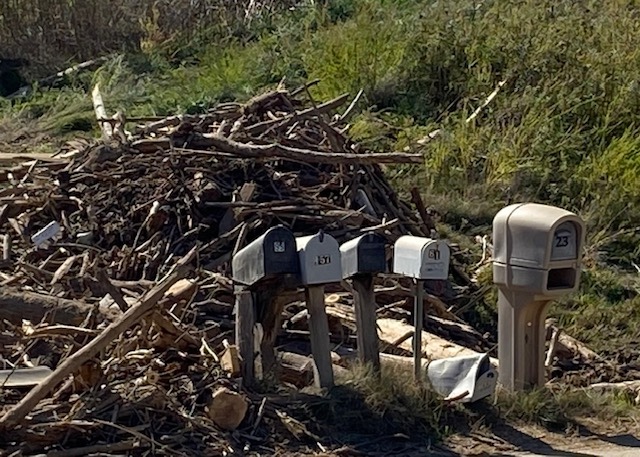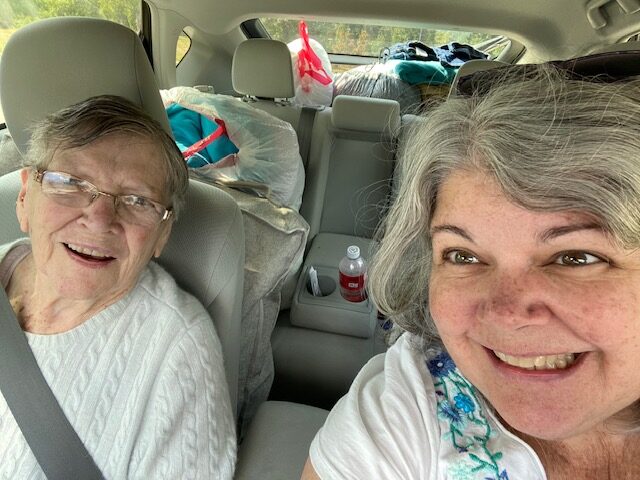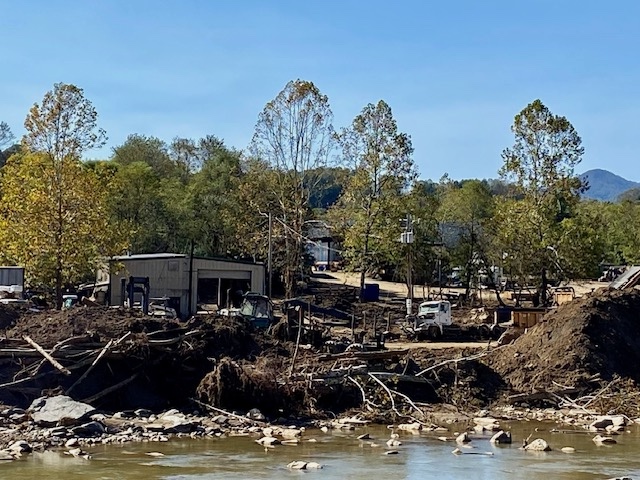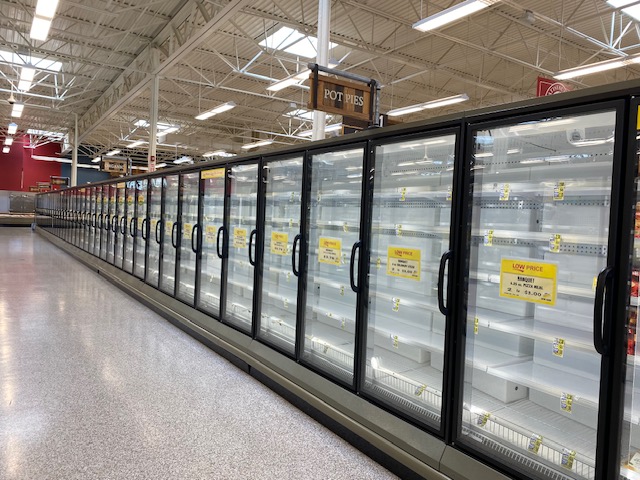
Detritus from raging flood waters surround mailboxes after Hurricane Helene swept through the mountain towns of North Carolina. Photo: Michelle Medeiros
I jokingly call myself a “climate prepper.”
I left the corporate world over 20 years ago when I realized I was no longer living my values. I got a master’s degree in international environmental policy and sat in science classes where I learned about the closing window for global action against climate change. As an environmental activist, I was on the front lines. I witnessed climate impacts happening halfway around the world —families destroyed by increasing typhoons, forest communities displaced by the highest bidders. Year after year, I watched as the stark warnings from thousands of scientists unfolded all around the globe.
So, when my family and I moved from the Netherlands to our mountain town in North Carolina a year ago to care for my mother, I thought I was prepared.

I did the research on climate impacts.
Asheville’s climate mitigation plans were sound, the city government was strong. I knew I wanted my own water source, enough land to grow food for myself, my husband, and my teenage son, and an open and kind community. I learned about flood zones but none of the warnings were too scary. I thought wildfire would be one of the things that could threaten us the most as we settled into Enka/Candler a few miles from West Asheville. I also worried about snow, but we had no snow our first year in the mountains!
We started a garden, bought bulk containers to collect rainwater, prepared them for hook up, and made plans to install a solar array.
When we heard that Helene was coming through, we felt ready. Then the storm hit. We could quickly see that we had woefully underestimated Helene’s impact. As flood waters rushed through town, families lost homes, buildings were destroyed, and thousands are still without power two weeks later. Stories and images of devastation are all around. It is all we see in the news, in our social media feeds.
Even so, we were lucky.
We only lost some trees around our property, and the main exit from our neighborhood was blocked off by downed power lines. Our neighbors pulled together and cleared a small path to get out. We didn’t have power, water, or an internet connection for a week, but we managed because our neighbors were there for us. There is a community coming together to help one another shake off the trauma Helene left in her wake.

Things are slowly returning to normal near where we live, though there is still no water in much of the area. But what hits me the most is the real cognitive dissonance to sit in our bubble and have some sense of normalcy when just a few miles away families lost so much. The entire River Arts District is gone. Many businesses are closed, with no idea of when or if they will reopen. Some people are still clearing mud from their homes, and it will be weeks before they have water. I am astounded. It’s not supposed to happen here.

I thought I had found a climate haven for me and my family. After Helene, I realized that there is no haven for any of us.
I have been learning about ecological grief and have built a well-being practice for the past six years to grapple with the collapse of our current way of life. I am still in the process of coming to terms with what we face.
Helene taught us many powerful lessons. One of the clearest is that nowhere is immune from the impacts of climate change. It’s a hard lesson for me and even harsher for my teenage son because this is the future awaiting him.
Michelle Medeiros has spent 25 years in organizational development, strategic planning, and resilience coaching. She is the deputy executive director of Earthworks, and previously worked in Greenpeace International in the Netherlands.



